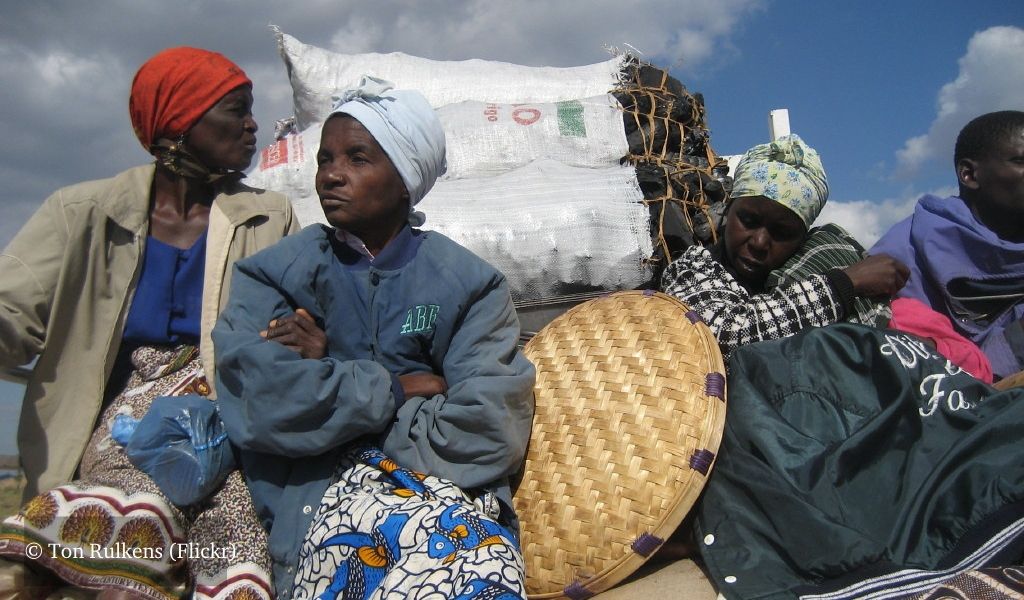Emerging research from the IDS-led Action for Accountability and Empowerment (A4EA) research programme is finding that – when it comes to linking marginalised households with local forms of authority, in other words taking on a role of intermediation and leadership – men still dominate. Stereotypes about the personal characteristics of men and women are still very prevalent, particularly in rural communities. And yet, some women have managed to push past these stereotypes.

The A4EA programme has been looking at how poor and marginalised communities engage with the state and local authorities, particularly in fragile, violence or conflict-affected settings. Such environments are uncertain and unstable, and people living in them often experience fear and distrust towards those in power. Can accountability or empowerment take hold in these contexts?
Governance Diaries, a methodology which tracked poor households’ engagement with authorities in Mozambique, Myanmar and Pakistan, found that “intermediaries” played a crucial role in mediating relationships between citizens (or the wider population) and public authority. Our project is following up on this work by seeking to understand who exactly these intermediaries are, and what are their roles and strategies when addressing different governance issues. We define them as the actors who are the first port of call in the governance chain for households, excluding family members and friends. They can sometimes be leaders, which is why we use the terms ‘intermediary’ and ‘leadership’ interchangeably in this blog.
When we began this research in early 2019, gender issues quickly sprang to the forefront. We found that space for intermediation and leadership is most commonly perceived as being “for men”, with men predominantly mediating in the public arena, for example on issues related to security and access to public services. This reinforces historically defined roles for men and women in society, where women are restricted to mediating private sphere and domestic matters.
Public intermediation and leadership is dominated by men
In Mozambique, only 5 of the 27 intermediaries we identified were women, exemplifying how male domination embedded within Mozambican society, impacts on a community’s selection of its intermediaries. Worryingly this perspective is also held by many of the women we interviewed, who view a man’s place as one of leadership, protection and provision, relegating themselves to a secondary position in these spaces:
To be a man is to be a leader in the household. The man’s work is hard. There are things that women can do and others they cannot: to be a leader, to command and to defend the interests of the community
Female Intermediary, Moatize -Tete, interview, 18 October 2019
The men we interviewed responded in a similar fashion, claiming leadership for themselves just because they are men. Women can lead in their absence, but even then, only by representing the men’s views.
A woman can be a chief […] being a woman does not change anything. [She] is still a woman. Even in a house, if the man is absent, the woman becomes the second in charge. The woman is there representing [the man]
Male Intermediary, Nampula City, interview, 12 October 2019
Another concerning aspect around legitimising men’s leadership position in public space is the idea of their cognitive superiority over women.
“The memory of women and men is different […] women’s memory is weaker”
Male Intermediary, Moatize -Tete, interview 16 October 2019
These extracts highlight how intermediary selection processes are held hostage to the logic of male domination from two perspectives: firstly, women maintaining and reproducing a discourse of being “traditionally” subordinate to men, and secondly, men claiming their leadership as “natural” in both public and private spaces, supported by women.
When women do take on leadership roles, their power is limited
The five female intermediaries we did identify were: a healer, a head of ten households, Frelimo Party secretary, and two presidents of civil society organisations. Even if selected by communities, however, their intermediation was influenced by the same logic of male domination described above. This is because, unlike men, women appear to lead intermediation processes related to domestic issues, such as adultery, homelessness, quarrelling, and raising children, especially girls.
Researcher: Who comes to you for help?
Interviewee: Mostly women. The majority of the cases are those in which men abandon their families. I am female and I know how hard it is to be abandoned or to have children without someone to support. So I call the men. I sit with them to resolve, but when these men despise me, I refer the case to the community court.
Female Intermediary, Moatize-Tete, interview, 16 October 2019
This excerpt illustrates that, even in the sphere of women’s action, the processes and dynamics of intermediation are still influenced by the same logic of male domination. As the intermediary above says, when ‘men despise her’, she has to refer the issue to other authorities.
We can see from these initial findings that despite the official discourses and policy instruments which supposedly promote women’s emancipation, in rural Mozambique (just as in urban areas) women remain excluded from most decision-making spaces. When they are allowed to act as intermediaries in these spaces, their field of action is generally circumscribed by their socially-ascribed roles, particularly the field of family relations, housekeeping and the care economy.
Our focus in the next phase of the research will be on those women who manage to break this mould and extend their work as intermediaries into traditionally male-dominated areas.
Egídio Chaimite and Lúcio Posse are researchers at the Institute of Social and Economic Studies (IESE).
Read more
- IDS Working Paper 534: Governance Diaries: An Approach to Governance Research from the Ground Up